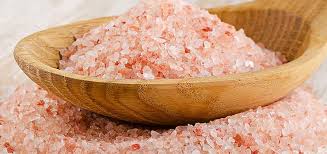Economic Desk
After acquiring trademark rights for its aromatic Basmati rice, Pakistan has decided to register pink salt to prevent the misuse of the product by other countries especially neighbouring India.
Pakistan’s commerce ministry will get the pink salt registered on a fast-track basis. The registration of the Geographical Indicator (GI) tag for local products “will serve as a potential economic tool to promote and enhance national and international trade of Pakistan” and earn revenue, Commerce Adviser Abdul Razak Dawood said.
According to Commerce Ministry officials, the move is aimed at curbing unauthorized use of Pakistan’s indigenous products by other countries like India. The trademark will encourage producers to promote made in Pakistan products globally and expand their businesses, the advisor said in a tweet. Pakistan’s commerce ministry is also preparing a list of other products for registration on a priority basis and has asked the business community to identify other products to be registered.
Pakistan possesses some of the world’s largest salt deposits and is home to the second largest salt mine in the world in Khewra region in Punjab province. The country’s salt reserves have been estimated at around 10 billion tonnes with some 400,000 tonnes of salt exported every year.
The pink Himalayan salt does not actually come from the Himalayas but mostly mined from the salt deposited some 800 million years ago in Khewra salt mines, about 180 kilometres from the capital, Islamabad. Pakistan’s pink salt is in huge demand abroad for a wide variety of uses from cooking to spa treatments to lamps.
In 2019, the pink salt became a matter of national pride as a social media campaign called for end to selling the raw salt at cheap rates to India which then re-exported it as made in India product. After the social media outrage, Pakistan passed legislation to trademark the unique pink salt as a Pakistani product to increase exports and benefit local producers.
Pakistan enacted Geographical Indicators Act 2020 last year to protect Pakistani brands, combat counterfeiting and ensure premium prices for country’s indigenous products in foreign markets.
The legislation is aimed at protecting local products like Peshawari chappal, Multani blue pottery, Hunza apricots, Sargodha kinnow, Multan mango, Hala Ajrak, Chaman grapes, Turbat Dates, Kasuri methi and other such products.
Last month, Pakistan received the GI tag for its Basmati rice, which producers hope will boost export of Pakistan’s long grain, aromatic rice globally and strengthen the country’s case against India’s move to label the rice in the European Union.















